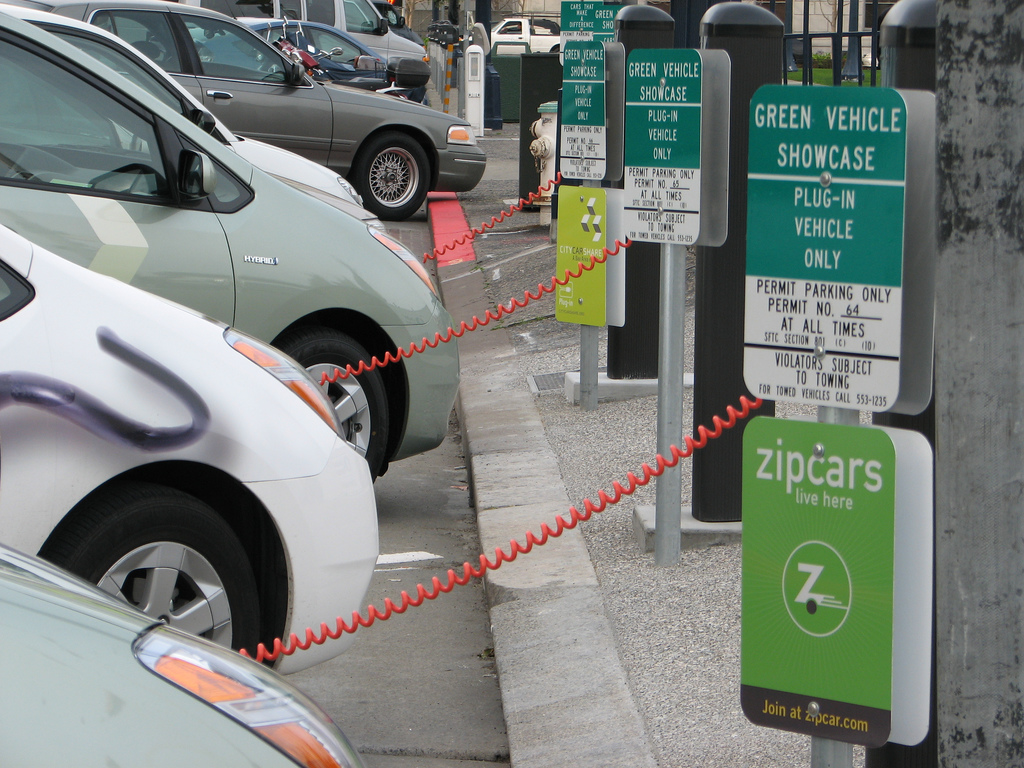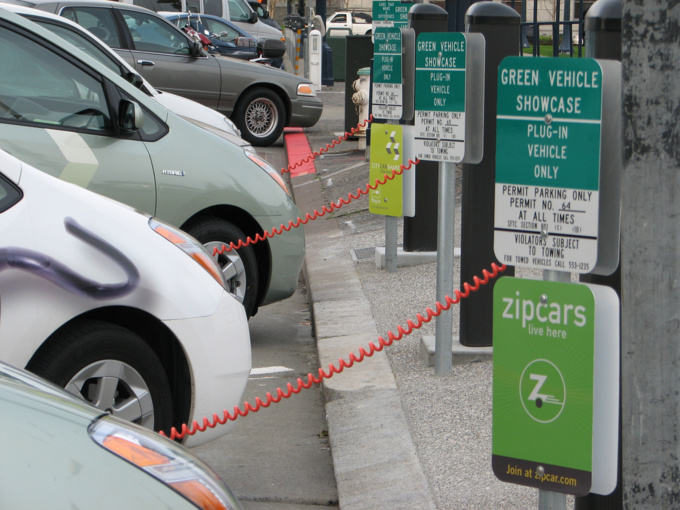The increase in the number of electric vehicles is a cause for concern in the global energy sector. The rapid growth in demand for electric cars cannot but affect the oil industry. Although today's global economy is still inextricably linked to the state of the oil industry, the question of whether electric cars pose a serious threat to this industry is becoming increasingly acute.
At the end of 2018, the number of electric vehicles in the world grew to 5.6 million, which is 64% more than at the end of the previous year. In January-July this year, the global market for electric vehicles kept growing, reaching 35%. At the end of this year, the electric car market will rise by 23-48%, predicts Sanford C. Bernstein.
However, the future of electric vehicles and their impact on oil demand is not clear, say S&P. According to the International Energy Agency, more than 90% of the world's fleet continues to operate on petroleum products.
At the same time, the IEA does not exclude a scenario in which the boom in electric cars continues and oil prices fall. This “aggressive” scenario indicates that by 2040 there will be 930 million electric vehicles on the roads, or about half of the world's fleet, compared to 5 million in 2018. Oil demand for road transport will be 18 million barrels lower than today.
BP also expects increased use of electric vehicles. However, their forecasts are much more modest: by 2040 the number of electric cars will be 350 million. The growing demand is influenced by the declining price of electric cars. The prices have fallen by more than 65% since 2010.
“We expect that a big shift in the development of electric vehicles will begin in the early 2020s, when car manufacturers start to produce new models, the range of batteries will improve, charging time will be reduced, and the cost of an electric car will correspond to the cost of a car with an internal combustion engine,” said the vice BP President Roy Williamson.
Oil producers themselves are more optimistic about their long-term prospects. They note that oil and gas will continue to play a key role in the global energy structure for decades to come.
The lack of recharging stations, the limited range of distance and the still high cost will not soon allow electric vehicles to truly capture the market.
Meanwhile, oil companies are defending their business. A recent study by Oxford University found that more than 90% of patents filed by oil companies in 2018 relate to technologies aimed at making fossil fuels more efficient. Technological advances have enabled companies to research and produce oil even faster.
At the same time, many European oil companies now own or invest in startups for charging electric vehicles. For example, Shell bought First Utility in the UK.
At the same time, the oil and gas market can afford the luxury of not depending on price elasticity of demand, Energy Central writes. As the world's population grows, demand will also grow, regardless of how high the price of oil is.
Given that living standards in developing countries are rising statistically, more and more people are coming in to have a car. This will lead to an increase in demand for oil and gas, given the limited supply of electric vehicles worldwide, the newspaper writes.
source: energycentral.com
At the end of 2018, the number of electric vehicles in the world grew to 5.6 million, which is 64% more than at the end of the previous year. In January-July this year, the global market for electric vehicles kept growing, reaching 35%. At the end of this year, the electric car market will rise by 23-48%, predicts Sanford C. Bernstein.
However, the future of electric vehicles and their impact on oil demand is not clear, say S&P. According to the International Energy Agency, more than 90% of the world's fleet continues to operate on petroleum products.
At the same time, the IEA does not exclude a scenario in which the boom in electric cars continues and oil prices fall. This “aggressive” scenario indicates that by 2040 there will be 930 million electric vehicles on the roads, or about half of the world's fleet, compared to 5 million in 2018. Oil demand for road transport will be 18 million barrels lower than today.
BP also expects increased use of electric vehicles. However, their forecasts are much more modest: by 2040 the number of electric cars will be 350 million. The growing demand is influenced by the declining price of electric cars. The prices have fallen by more than 65% since 2010.
“We expect that a big shift in the development of electric vehicles will begin in the early 2020s, when car manufacturers start to produce new models, the range of batteries will improve, charging time will be reduced, and the cost of an electric car will correspond to the cost of a car with an internal combustion engine,” said the vice BP President Roy Williamson.
Oil producers themselves are more optimistic about their long-term prospects. They note that oil and gas will continue to play a key role in the global energy structure for decades to come.
The lack of recharging stations, the limited range of distance and the still high cost will not soon allow electric vehicles to truly capture the market.
Meanwhile, oil companies are defending their business. A recent study by Oxford University found that more than 90% of patents filed by oil companies in 2018 relate to technologies aimed at making fossil fuels more efficient. Technological advances have enabled companies to research and produce oil even faster.
At the same time, many European oil companies now own or invest in startups for charging electric vehicles. For example, Shell bought First Utility in the UK.
At the same time, the oil and gas market can afford the luxury of not depending on price elasticity of demand, Energy Central writes. As the world's population grows, demand will also grow, regardless of how high the price of oil is.
Given that living standards in developing countries are rising statistically, more and more people are coming in to have a car. This will lead to an increase in demand for oil and gas, given the limited supply of electric vehicles worldwide, the newspaper writes.
source: energycentral.com



















